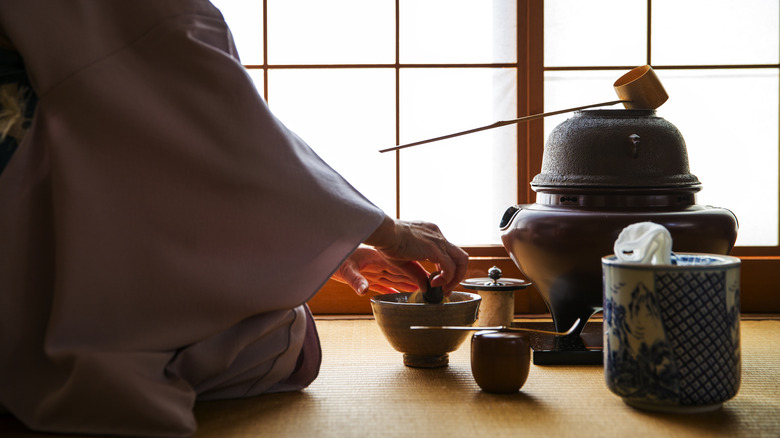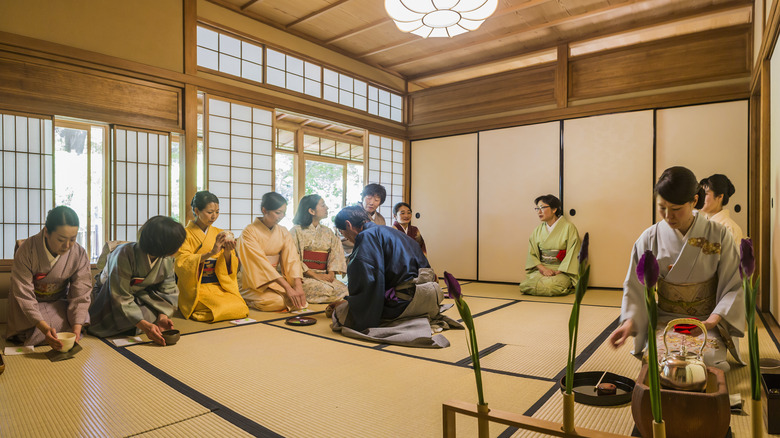The Etiquette Tip To Show Gratitude When Drinking Tea In Japan
Drinking tea is one thing, drinking tea in a Japanese tea house is another. Tea ceremonies have been a part of Japanese culture for centuries, dating all the way back to the Nara Period when monks first brought green tea leaves back from China. Back then, the tea was drunk as medicine. It was also believed that the ritual and routine of the tea ceremony would lead to enlightenment, and thus many practices were implemented into it — from specific hand movements to the use of artistic bowls. In turn, a full formal tea ceremony will last you hours.
While you're not by any means expected to understand all of the customs and formalities that go into a Japanese tea ceremony, if you're planning to participate in one, you should at the very least know how to show the host your gratitude. After all, it's likely not done in a way that you'd expect. Unlike the British tradition of high tea, where you're expected to sip quietly, you're actually encouraged to slurp during a Japanese tea ceremony. It might be your pet peeve, but it's actually a sign of gratitude to the person who is serving you your tea.
To clarify, the slurping sound is mostly reserved for the end of your cup. Not only does it indicate to your host that you're finished with your tea, but that you enjoyed every last sip of it. It's not the only etiquette tip, but it's certainly the most important.
A tourist's guide to the Japanese tea ceremony
A formal Japanese tea ceremony begins with a kaiseki-style meal, followed by a serving of thick tea and later, a serving of thin tea. While rooted in simplicity, mastering all of it can take years. It'd be impossible to learn and remember it before actually participating in one yourself. But, no one is expecting you to. In fact, part of the beauty of participating in a ceremony when you visit Japan is everything that there is for you to learn. Even so, there are a few rules, in addition to the slurping, you should know going into one to show respect.
While formalities can vary depending on where you go, you should always arrive dressed in accordance with the "wabi sabi" style. That means "simple is best" — literally. The same thing goes for your jewelry and perfume. When you arrive, you'll be expected to wash your hands in the garden before entering the tatami room, taking a seat, and bowing to your host. Before you drink tea, you'll be given a sweet that you should eat first. Then, when your tea is placed in front of you, it's customary to pick it up with your right hand and turn it clockwise away from you before taking a sip.
When you're all done, make sure to make a slurping sound before placing the bowl back down in front of you facing your host. That way, they'll know you've finished before offering you more.

